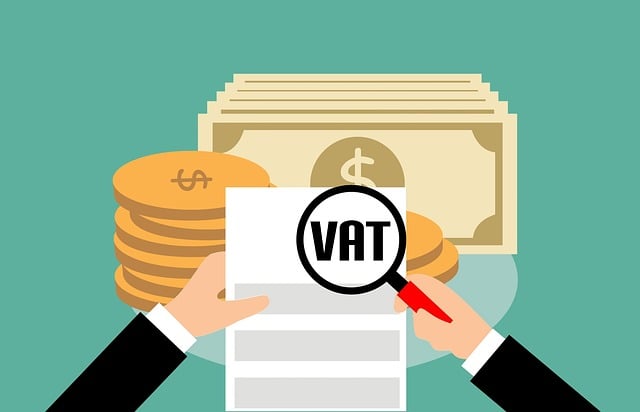In today's global business landscape, UK Corporate Tax Documents Translation Services are essential for multinational corporations seeking to navigate complex international tax regulations. These specialized services address legal and linguistic complexities, ensuring compliance with diverse global standards and local laws. Reputable providers employ native-speaking translators with tax expertise, leveraging advanced software and industry-specific glossaries to deliver accurate, consistent, and legally compliant translations that meet HMRC standards. Machine translation technologies further enhance efficiency, streamlining processes for businesses operating in international markets. Prioritizing these professional services is crucial for avoiding penalties, expediting operations, and facilitating smoother global business growth.
Professional translation services play a pivotal role in ensuring compliance with complex UK corporate tax regulations. With language requirements varying across jurisdictions, accurate translations are essential for navigating tax submissions successfully. This article explores the critical aspects of corporate tax form and submission translations, from understanding regulatory nuances to leveraging technological advancements like machine translation (MT) and artificial intelligence (AI). Discover how professional services streamline processes, maintain quality, and adapt to future trends in UK corporate tax document management.
- Understanding the Importance of Accurate Translations in Corporate Tax Compliance
- Navigating UK Corporate Tax Regulations and Their Language Requirements
- The Role of Professional Translation Services in Streamlining Tax Processes
- Key Considerations When Choosing a Translation Provider for Tax Documents
- Ensuring Quality and Precision: Best Practices in Corporate Tax Translation
- Case Studies: Successful Translations in Complex Corporate Tax Scenarios
- Technological Advancements in Machine Translation for Tax Compliance
- Future Trends: AI and Its Impact on UK Corporate Tax Document Translations
Understanding the Importance of Accurate Translations in Corporate Tax Compliance

In the complex landscape of international business, accuracy is paramount, especially when it comes to tax compliance. For UK-based corporations operating globally, understanding and navigating diverse legal and linguistic frameworks is crucial. Professional translation services play a pivotal role in ensuring that UK corporate tax documents are accurately interpreted and submitted, thereby avoiding potential pitfalls and penalties.
The precision of translations directly impacts the integrity of financial reporting and risk management. With ever-evolving tax regulations across jurisdictions, relying on qualified translators who possess expertise in both language and tax terminology is essential. These services guarantee that critical information is conveyed correctly, fostering compliance with international standards and local laws.
Navigating UK Corporate Tax Regulations and Their Language Requirements

Navigating the complex landscape of UK corporate tax regulations requires expertise, and one often-overlooked aspect is the language barrier. With various tax forms and submissions, businesses must ensure their documentation is not only accurate but also compliant with linguistic standards. This is where professional translation services for UK corporate tax documents come into play. They provide a vital link between multilingual companies and HMRC (Her Majesty’s Revenue and Customs), ensuring smooth communication.
Tax regulations are notoriously intricate, filled with technical jargon and specific terminology. Professional translators possess the knowledge to decipher these terms, accurately translate them, and convey the intended meaning in the target language. This is crucial for avoiding misunderstandings, penalties, or even legal issues that could arise from incorrect translations of tax forms, such as company accounts, tax returns, or transfer pricing documentation.
The Role of Professional Translation Services in Streamlining Tax Processes

In today’s globalised business landscape, companies often operate across borders, dealing with complex tax regulations in multiple jurisdictions. Professional translation services play a pivotal role in navigating this intricate web, especially when it comes to UK corporate tax documents. Accurate and reliable translation ensures that businesses can submit their tax forms and statements without ambiguity, reducing the risk of errors and potential penalties.
These services streamline the entire tax process by providing native-speaking translators who are not only proficient in legal terminology but also understand the nuances of different tax systems. By ensuring clarity and consistency across documents, professional translation services facilitate faster processing, improving overall efficiency for businesses and tax authorities alike.
Key Considerations When Choosing a Translation Provider for Tax Documents

When selecting a translation provider for UK corporate tax documents, several key considerations come into play to ensure accuracy and compliance. The first step is to verify the provider’s expertise in financial and legal translation, as these fields require a deep understanding of terminology and regulatory requirements. Look for companies that have experience handling complex tax forms, as this ensures they can manage even the most intricate documents. Reputable firms will often provide native-language translators who are well-versed in both the source and target languages, guaranteeing an accurate translation.
Additionally, it’s crucial to assess the quality assurance processes of potential service providers. Established companies typically employ rigorous quality control measures, including multiple rounds of editing and proofreading, to deliver error-free translations. Requesting samples or case studies can give you insight into their capabilities and attention to detail. Reputable firms will also adhere to data security protocols, especially when dealing with sensitive tax information, ensuring client confidentiality.
Ensuring Quality and Precision: Best Practices in Corporate Tax Translation

When it comes to corporate tax forms and submissions, accuracy is paramount. Businesses navigating complex international tax landscapes rely on professional translation services to ensure their UK Corporate Tax Documents are correctly interpreted and filed. Quality translations go beyond simple word-for-word substitutions; they demand a deep understanding of both the language and the tax concepts involved. Reputable translation providers employ native speakers with specialized tax expertise, leveraging industry-specific glossaries and terminologies to guarantee precise renderings.
Best practices in corporate tax translation include rigorous quality assurance processes. These often involve multiple rounds of review by expert translators and editors, leveraging advanced translation memory software to maintain consistency across documents. Compliance with relevant regulatory standards, such as those set by the HMRC, is essential, ensuring that translated documents remain legally sound and admissible.
Case Studies: Successful Translations in Complex Corporate Tax Scenarios

In the dynamic landscape of international business, precision and accuracy in communication are paramount, especially when navigating complex tax regulations. Case studies of successful UK Corporate Tax Documents translation services highlight their pivotal role in facilitating seamless compliance for multinational corporations. These translations often involve intricate financial terminology, diverse legal frameworks, and a deep understanding of tax policies across multiple jurisdictions.
For instance, consider a leading tech company expanding its operations into the European Union. Accurate translation of their annual tax filings ensured adherence to both UK and EU tax laws, preventing costly mistakes and delays. Another case involves a multinational pharmaceutical firm whose detailed clinical trial reports required precise translation to meet regulatory standards across several countries. These real-world examples underscore the critical importance of professional translation services in managing corporate tax obligations, ensuring compliance, and facilitating global business growth.
Technological Advancements in Machine Translation for Tax Compliance

The digital transformation has brought about significant advancements in machine translation (MT), offering innovative solutions for businesses navigating complex international markets, including those dealing with UK Corporate Tax Documents translation services. These breakthroughs have revolutionized the way professionals manage multilingual content, ensuring accuracy and efficiency in tax compliance. With MT, companies can now automate the translation process, reducing time and resource-intensive manual efforts.
Advanced machine learning algorithms enable these systems to understand context, capture nuances, and deliver highly accurate translations. This is particularly beneficial for legal and financial documents, where precision is paramount. By leveraging MT, businesses can streamline their tax preparation and submission processes, enabling faster decision-making and improved overall compliance.
Future Trends: AI and Its Impact on UK Corporate Tax Document Translations

Professional translation services play a pivotal role in ensuring accuracy and compliance when dealing with UK corporate tax documents. By leveraging expert translators and advanced technologies, such as AI-powered machine translation, businesses can streamline their tax processes, meet stringent language requirements, and avoid potential legal pitfalls. When selecting a provider, prioritize quality, precision, and industry expertise to guarantee the integrity of your tax submissions, fostering a robust and efficient corporate tax compliance strategy.
